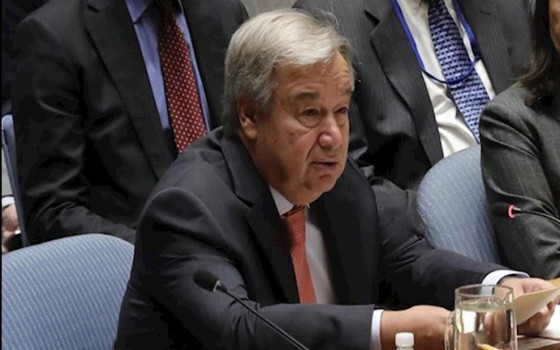
The Secretary-General of the United Nations described it as a disaster.. 3.3 billion people in the world suffer because of debt

- Europe and Arabs
- Thursday , 13 July 2023 16:49 PM GMT
New York - Brussels: Europe and the Arabs
The Secretary-General of the United Nations said that half of humanity lives in countries that are forced to spend more on debt servicing than on health and education, which makes half of the world "plunging into a development catastrophe." According to the United Nations news bulletin, a copy of which we received on Thursday morning
Antonio Guterres' remarks came in his speech on Wednesday during the presentation of the Global Debt Report in 2022, which bears the name "A World of Debt" and was prepared by the United Nations Global Crisis Response Group.
The Secretary-General warned that 3.3 billion people in the world are suffering because their governments put debt interest payments as a priority instead of basic investments in the goals of sustainable development or energy transition.
He added that, according to the report issued on Wednesday, 52 countries - equivalent to 40 percent of the developing countries in the world - suffer from a serious debt problem, and he affirmed his support for calls for urgent financial aid for those countries.
Guterres pointed out that public debt last year reached a record high of $92 trillion, of which developing countries bear 30 percent, which is an unequal burden.
He added that these irrepayable debts are seen as not posing a systemic risk to the global financial system "because they are concentrated in poor countries".
Payless financial system
The Secretary-General stressed that the catastrophic levels of public debt in developing countries are a systemic failure resulting from inequalities inherited from the colonial era and rooted in our "outdated financial system".
He added, "This system has not fulfilled its mission as a safety net that helps countries face successive and unexpected shocks, including the Covid-19 epidemic, the devastating impact of the climate crisis, and the Russian invasion of Ukraine."
Guterres said the cost of borrowing is four times higher for African countries than the United States, and eight times higher than for rich European economies.
He pointed out that poor countries are increasingly dependent on private creditors that charge very high interest rates, and that these countries find themselves forced to borrow for their economic survival.
The Secretary-General said that debt has turned from an important financial tool "into a trap that creates more debt".
urgent fixes
Guterres said the report proposed a number of urgent reforms, including an effective debt rescheduling mechanism that supports moratoriums on debt payments and conditions for longer grace periods for debt repayments.
He added that the UN report also called for a significant increase in long-term concessional financing operations by changing the functions of multilateral development banks and re-employing them to support sustainable development and increase private resources.
The Secretary-General noted that the Bridgetown Agenda led by the Prime Minister of Barbados and the Paris Summit aimed at creating a new international financial compact "made important proposals on global debt relief," expressing his hope that the upcoming meeting of the Group of Twenty in September will adopt some of these ideas.












No Comments Found